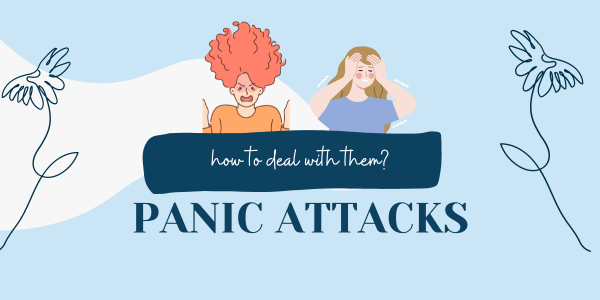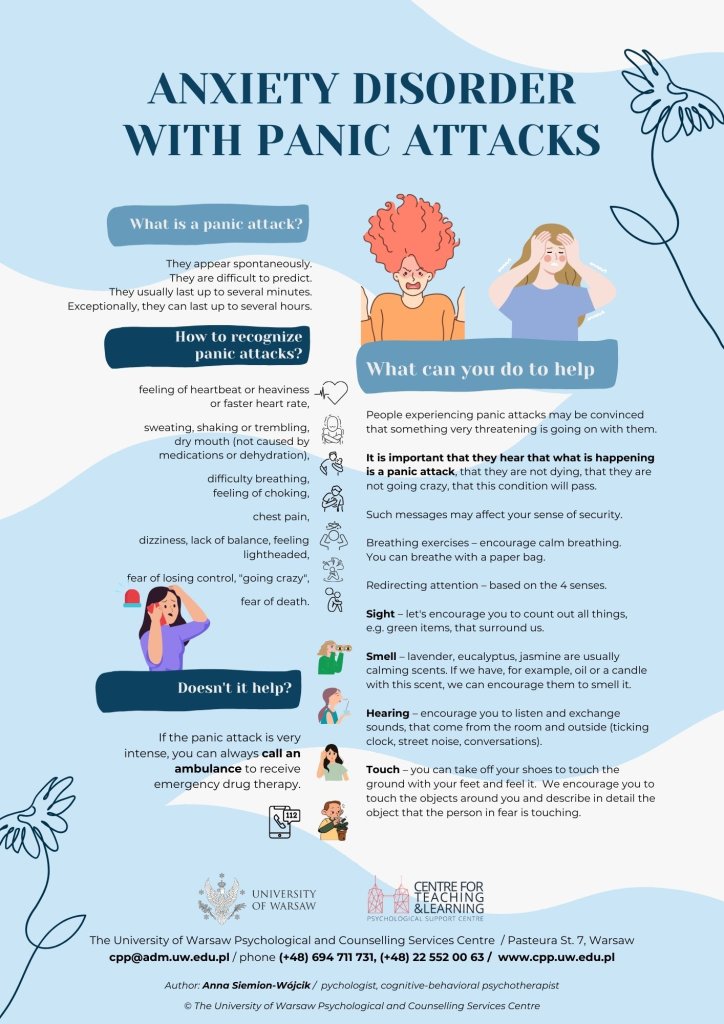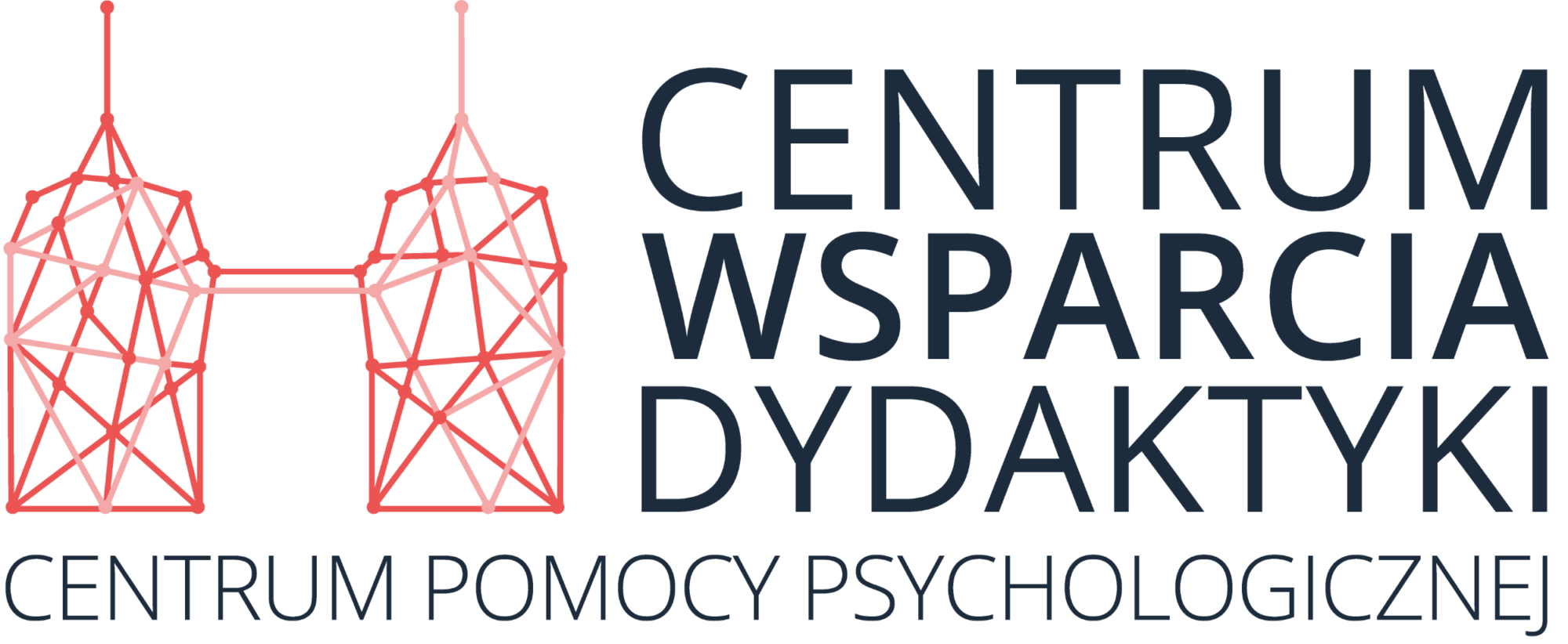Anxiety disorder with panic attacks

Anxiety disorder with panic attacks
- They appear spontaneously.
- They are difficult to predict.
- They usually last up to several minutes. Exceptionally, they can last up to several hours.
How to recognize panic attacks?
Some of the symptoms of panic attacks:
- feeling of heartbeat or heaviness or faster heart rate,
- sweating,
- shaking or trembling,
- dry mouth (not caused by medications or dehydration),
- difficulty breathing,
- feeling of choking,
- chest pain,
- dizziness, lack of balance, feeling lightheaded,
- fear of losing control, “going crazy”,
- fear of death.
What can you do to help someone experiencing intense anxiety?
- People experiencing panic attacks may be convinced that something very threatening is going on with them. It is important that they hear that what is happening is a panic attack, that they are not dying, that they are not going crazy, that this condition will pass. Such messages may affect your sense of security.
- Breathing exercises – encourage calm breathing. You can breathe with a paper bag.
- Redirecting attention – based on the 4 senses.
-
- Sight – let’s encourage you to count out all things, e.g. green items, that surround us.
- Smell – lavender, eucalyptus, jasmine are usually calming scents. If we have, for example, oil or a candle with this scent, we can encourage them to smell it.
- Hearing – encourage you to listen and exchange sounds, that come from the room and outside (ticking clock, street noise, conversations).
- Touch – you can take off your shoes to touch the ground with your feet and feel it. We encourage you to touch the objects around you and describe in detail the object that the person in fear is touching.
- If the panic attack is very intense, you can always call an ambulance to receive emergency drug therapy.
Author: Anna Siemion-Wójcik
psychologist, cognitive-behavioral psychotherapist

